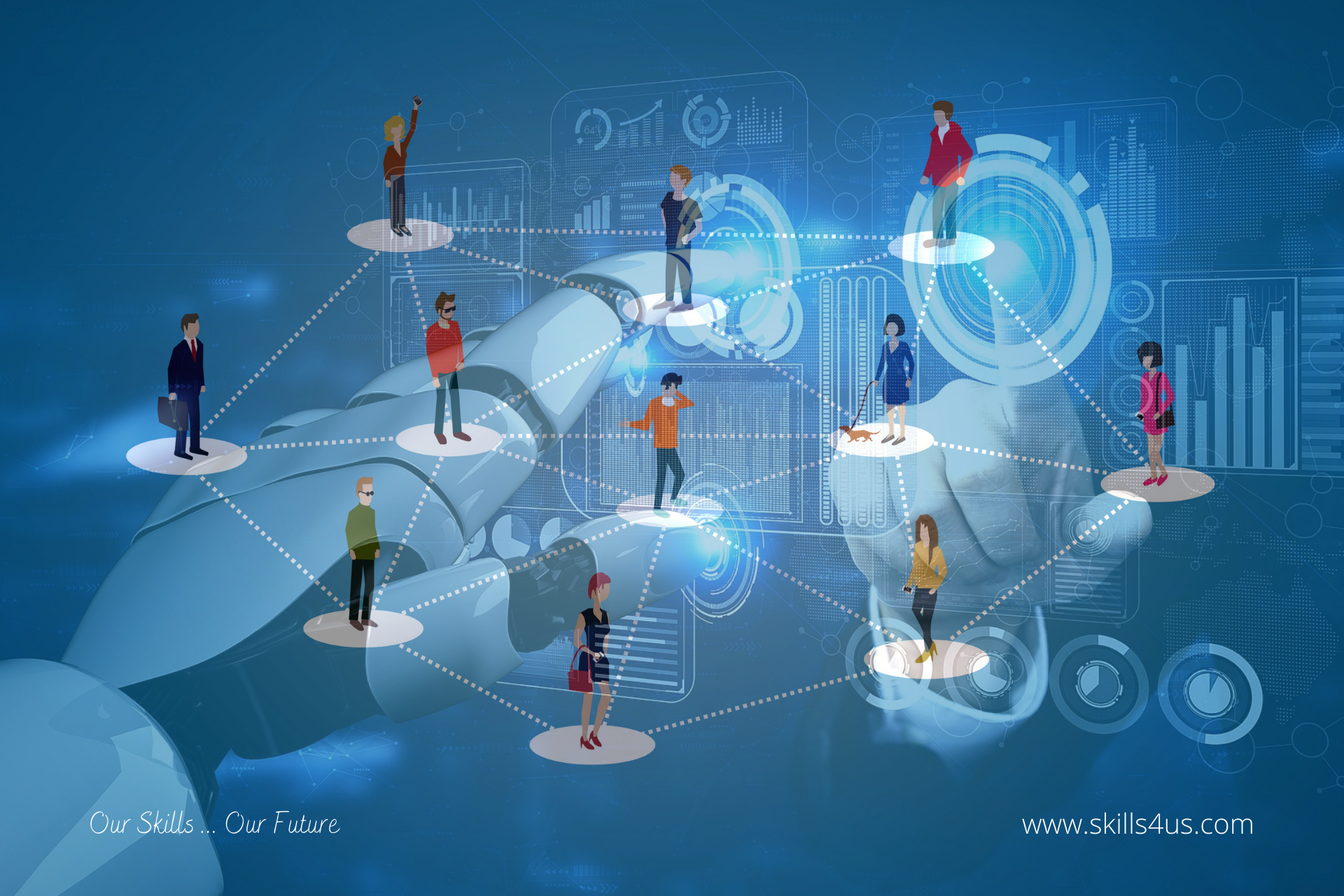HRM is one of the essential parts of any organization. Because it is directly related to the lives of the employees working in it. Employees need a well-communicated and positive work environment to be effective and productive and a sense of security, and the provision of space for creativity, intelligence, and empathy to deliver excellent work. That is why the integration of AI with HRM has contributed to this. It automates and completes most daily routine HRM tasks. So that more attention focused on the strategic scope of the work.
Integration of AI with HRM
Organizations will see an upgraded and evolving status of job applicants and workers due to the end-to-end human component of HR combined with the intelligence of technology. Also The Integration of AI with HRM will enhance the value of achieving better and faster results. It also uses pre-programmed algorithms to make real-time decisions and coherent computing approaches.
Applications of AI in HRM
The HR Department plays an ongoing routine role in the recruitment and training of employees. To reduce the manual burden of HRM professionals, AI offers many applications:
1) Attracting and hiring talent
AI is used in HRM to attract and attract talent. It significantly reduces the time and effort required for the recruitment process, from screening applicants to maintaining databases, arranging interviews, and processing and resolving candidate inquiries.
With the help of AI, the candidates with the highest potential are tracked and communicated with them via chatbots. The best and most deserving candidate who matches the job description is selected. As a result, the best candidates for job interviews will be identified.
2) Orientation of new employees
On the first day, AI systems will teach and guide newly hired employees on the knowledge and rules of the organization. New employees will get all necessary information. Such as job profile data, work regulations, assignments, team members’ information, etc., via the mobile application or the organized information on their laptop.
3) Staff training
Using AI services, employees will be able to learn about appropriate roles and needs. In addition, AI will automatically understand and identify proper training for employees by providing relevant skillset information based on job descriptions to improve growth.
We conclude that this intelligent technology enhances the productivity and minds of employees. And educates and trains them more quickly and effectively.
4) Reinforce employee experience
AI is efficiently integrates across the employee lifecycle, from recruitment to selection through HRM services and career paths, enhancing the employee’s personalized experience and expertise. Accordingly, HRM can assess employee engagement and job satisfaction more accurately than ever through customized feedback surveys and employee recognition programs.
5) Leading
As AI will help employees with training and development. It will also improve the working techniques of coaches, business leaders, and managers. AI will also assess the structure of the leader’s characteristics by asking questions to their team members. It gives them the competencies and abilities they lack or the traits they need to adapt. By looking at the dashboard of this intelligent technology, leaders can analyze their personalities and enhance their skill sets according to workplace requirements.
Adopting AI in HRM
Some factors to consider while adopting AI in HRM:
- It is critical to get reliable and valid data for successful AI outcomes. And ensure that the output-driven objective is clear.
- Implementation requires particular talents and techniques by ensuring HRM is specific and transparent when collecting suitable data sources and purifying and organizing them.
- There should be a clear vision and instructions on identifying appropriate patterns of study and work.
- In fact, AI will only do what the user wants it to do. It cannot make decisions by itself, so the accuracy of the data must be ensured.
The challenges of AI in HRM
HRM professionals should be aware of the following potential problems and challenges which will face AI in HRM:
- Security and privacy
- Some workers prefer dealing with a human being rather than a machine.
- Protection of personal data of employees.
- Maintaining AI, which needs continuous evaluations and upgrades, requires a time-consuming maintenance procedure that sometimes limits data availability.
Organizations must adopt AI solutions that meet their business needs and align with the organization’s culture, creating the necessary digital maps. We conclude that finding trustworthy educational data sets, using the right implementation strategy, looking for clarity, minimizing bias, and considering spillovers are essential aspects of HRM and using AI systems.
